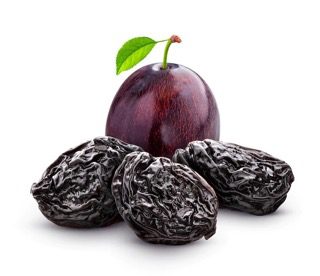

While prunes can be a healthy addition to a dog’s diet, it is important to exercise caution when feeding them to your furry friend. Pitted prunes are high in sugar and can cause health issues such as diabetes if consumed in excess. Additionally, the pits contain toxic cyanide, making it crucial to only serve prunes without pits to your dog and in moderation.
Prunes, which are dried plums, are a great source of essential nutrients for dogs. They are rich in vitamin K, vitamin B complex, and vitamin A, which can improve brain function, energy levels, and cell metabolism. Prunes are also an excellent source of fiber, promoting healthy digestion in dogs.
Prune pits contain hydrogen cyanide, which can be harmful to dogs if ingested or chewed on. Plum poisoning can be fatal in severe cases. Additionally, the pits are a choking hazard and can cause intestinal obstruction. While prunes without pits are safe for dogs, excessive consumption can cause diarrhea or stomach upset due to their high sugar content.
To prevent choking and cyanide poisoning, always remove the pit before serving prunes to your dog. It is important to serve prunes in moderation, giving no more than 1/4 of a prune as an occasional treat.
Prunes, also known as dried plums, are a nutrient-rich fruit that can be a healthy addition to your dog's diet. Prunes are high in vitamins K, A, and B complex, which promote brain function, energy levels, and cell metabolism. They are also a great source of fiber, aiding in digestion. However, caution must be exercised when feeding prunes to dogs as the pits are toxic and can cause health issues. Only offer prunes without pits and in moderation to prevent any potential health risks. It is affordable and easy to access, making it a convenient snack.
Have you ever considered serving prunes to your dog? If so, have you noticed any positive effects on their health? Alternatively, have you ever experienced any negative effects from feeding prunes to your furry friend? Let me know in the comments below! Remember, always consult with your vet before introducing any new food into their diet.